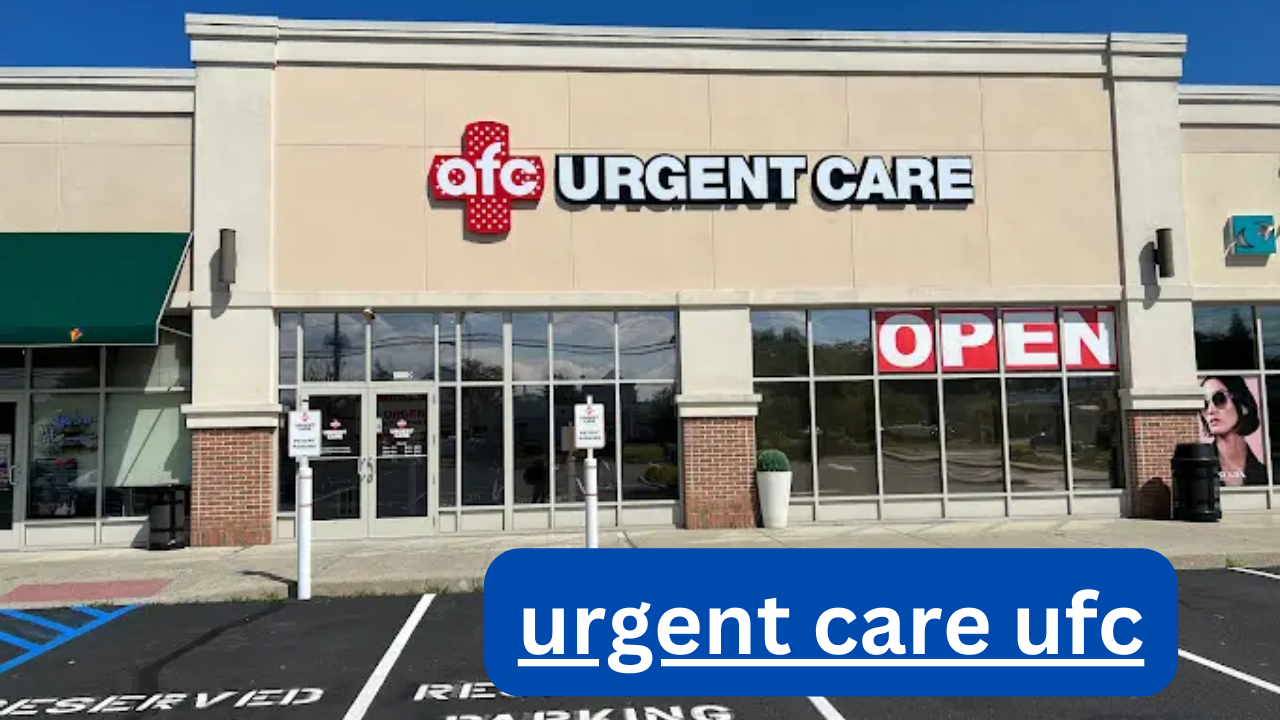In today’s fast-paced world, the need for immediate medical attention can arise at any moment. Whether it’s a sudden illness or an unexpected injury, having access to urgent care services is crucial. This article explores the urgent care UFC, a prominent healthcare option designed to bridge the gap between primary care and emergency room services. We will delve into the features, benefits, and considerations of using urgent care centers, helping you make informed decisions about where to seek medical help in urgent situations.
What is Urgent Care?
Urgent care centers are specialized facilities that provide immediate, non-emergency medical care outside of regular office hours. These centers are designed to handle a wide range of medical conditions that require prompt attention but are not life-threatening. Urgent care centers typically operate during evenings, weekends, and holidays, offering extended hours compared to traditional primary care offices.
Features of Urgent Care Facilities
- Extended Hours: Unlike regular clinics, urgent care centers are open beyond traditional office hours, including evenings and weekends. This flexibility ensures that patients can receive care when they need it most.
- Walk-in Services: Most urgent care centers operate on a walk-in basis, allowing patients to receive treatment without needing a prior appointment. This feature is particularly beneficial for individuals who need immediate attention for non-life-threatening conditions.
- Comprehensive Care: Urgent care facilities are equipped to handle a broad spectrum of medical issues, including minor injuries, infections, and illnesses. They often provide services such as x-rays, laboratory tests, and basic diagnostic procedures.
- Cost-Effective Care: Urgent care centers are generally more affordable than emergency rooms, making them a cost-effective alternative for non-severe conditions. This can be especially advantageous for patients without comprehensive health insurance.
When to Use Urgent Care Services
Understanding when to seek urgent care is essential for ensuring that you receive appropriate and timely medical attention. Here are some scenarios where an urgent care visit is recommended:
- Minor Injuries: If you sustain a minor injury, such as a sprain, strain, or small laceration, urgent care centers can provide the necessary treatment and follow-up care.
- Common Illnesses: Conditions like flu, cold, or mild respiratory infections that do not require emergency intervention can be effectively managed at urgent care centers.
- Infections: Urgent care facilities can address infections such as urinary tract infections (UTIs), skin infections, and ear infections, offering prompt diagnosis and treatment.
- Diagnostic Testing: For patients requiring diagnostic tests like x-rays or lab work, urgent care centers offer these services on-site, facilitating quicker diagnosis and treatment.
Urgent Care vs. Emergency Room: Understanding the Differences
It is important to differentiate between urgent care and emergency room services to ensure that you seek the appropriate level of care:
- Emergency Rooms: Emergency rooms are designed to handle life-threatening conditions and severe medical emergencies. They are equipped with advanced technology and staffed by specialized healthcare professionals to manage complex and critical situations.
- Urgent Care Centers: Urgent care centers, on the other hand, focus on non-emergency situations that still require prompt attention. While they are well-equipped to handle many medical issues, they are not designed for severe emergencies.
Choosing the Right Urgent Care Facility
Selecting the right urgent care center involves considering several factors to ensure you receive high-quality care:
- Location: Choose an urgent care facility that is conveniently located to minimize travel time during emergencies.
- Credentials: Verify that the urgent care center is accredited and staffed by qualified healthcare professionals. This ensures that you receive safe and effective care.
- Services Offered: Ensure that the facility provides the specific services you may need, such as x-rays or laboratory tests, to address your medical concerns comprehensively.
- Insurance Coverage: Check if the urgent care center accepts your health insurance plan or offers affordable payment options to avoid unexpected costs.
Benefits of Urgent Care Centers
Urgent care centers offer several benefits that make them a valuable resource in the healthcare system:
-
Convenience:
The extended hours and walk-in services provided by urgent care centers make them a convenient option for receiving timely medical care.
-
Affordability:
Compared to emergency rooms, urgent care centers generally offer more affordable care, reducing the financial burden on patients.
- Quality Care: Urgent care facilities are staffed by experienced healthcare professionals who provide quality medical services for a range of conditions.
Conclusion
Urgent care centers play a vital role in providing immediate, non-emergency medical care. With their extended hours, walk-in services, and comprehensive care offerings, they serve as a valuable resource for addressing minor injuries, common illnesses, and diagnostic needs. Understanding the key features and benefits of urgent care facilities can help you make informed decisions about where to seek medical attention when you need it most.
